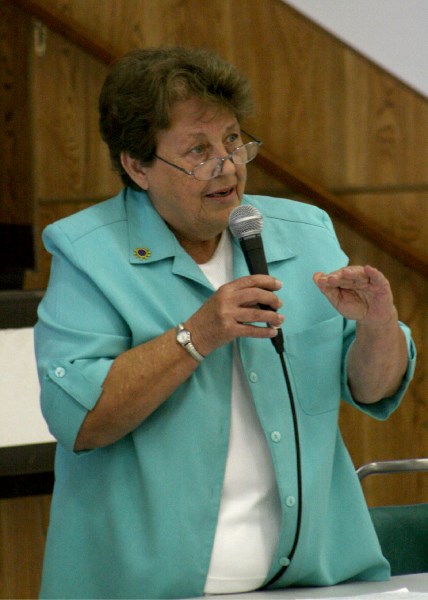Diana Anderson, chair of the Lakeland Communities Health Advisory Council, gave a presentation to the region 2 Alberta Aging Council at its annual general meeting in St. Paul at the Centennial Senior Citizens Hall on May 13.
The government established the council over a year ago to solicit feedback from the public on how programs and services are working, Anderson said.
“In my region, they are getting it," she quipped.
Anderson spoke to the recent Alberta Health Services (AHS) restructuring of the heath care system.
In a press release dated May 3, seven changes are highlighted, which AHS said would transfer more decision-making to the five zones, hospitals and community care centres, and which increase physician engagement in planning and service delivery.
“Now at the zone level they can make decisions regarding acute care and continuing care, and all the aspects of care in the zone," Anderson explained. “So hallelujah, it is a very good first step. We're really, really pleased with that."
Zones will now report to a chief operating officer, which Anderson said would be an improvement. Previously, doctor recruitment was under the minister of health and wellness's duties and the superboard managed operations, she said.
The changes reduce the bureaucracy from seven zones to five, creating fewer decision-making layers to go through, she said,
Dr. Chris Eagle is the new CEO and Mr. Duckett “ate-too-many-cookies" is gone," Anderson announced.
The advisory council has also heard about food issues throughout the region, something it has brought to the government's attention, she said.
When AHS introduced ten ways to improve the menu, Anderson went to the site supervisor for food services in Elk Point and the regional manager for food services and asked, “why was this not happening? And to tell you the truth I did not get any satisfactory answers."
AHS listed options to immediately respond to local meal preferences in an appendix to the external review of the provincial menu program.
Anderson said she asked how if the menu intended to reduce costs, how come the lodges are providing very good meals with lots of fresh fruits and vegetables for under $10 per person a day.
On June 23, the health advisory council will host another meeting in Smoky Lake at 5 p.m. in the provincial building. The vice-president of food services for Alberta, a member of the health superboard, the vice-president for community engagement, and the vice-president for senior care plan to attend, Anderson told the 30 Aging Council members in attendance. The focus of the meeting will be food services. Anderson encouraged people to attend to talk to the “head honchos."
There's no point in releasing ten options to improve the menu if they are not happening, Anderson added.
“They need to understand that this is a very important issue. When you are a senior in long-term care, you are paying for your accommodations, you are paying for the food services, and you have no control over it and you are not able to eat anything fresh that's produced locally?"



